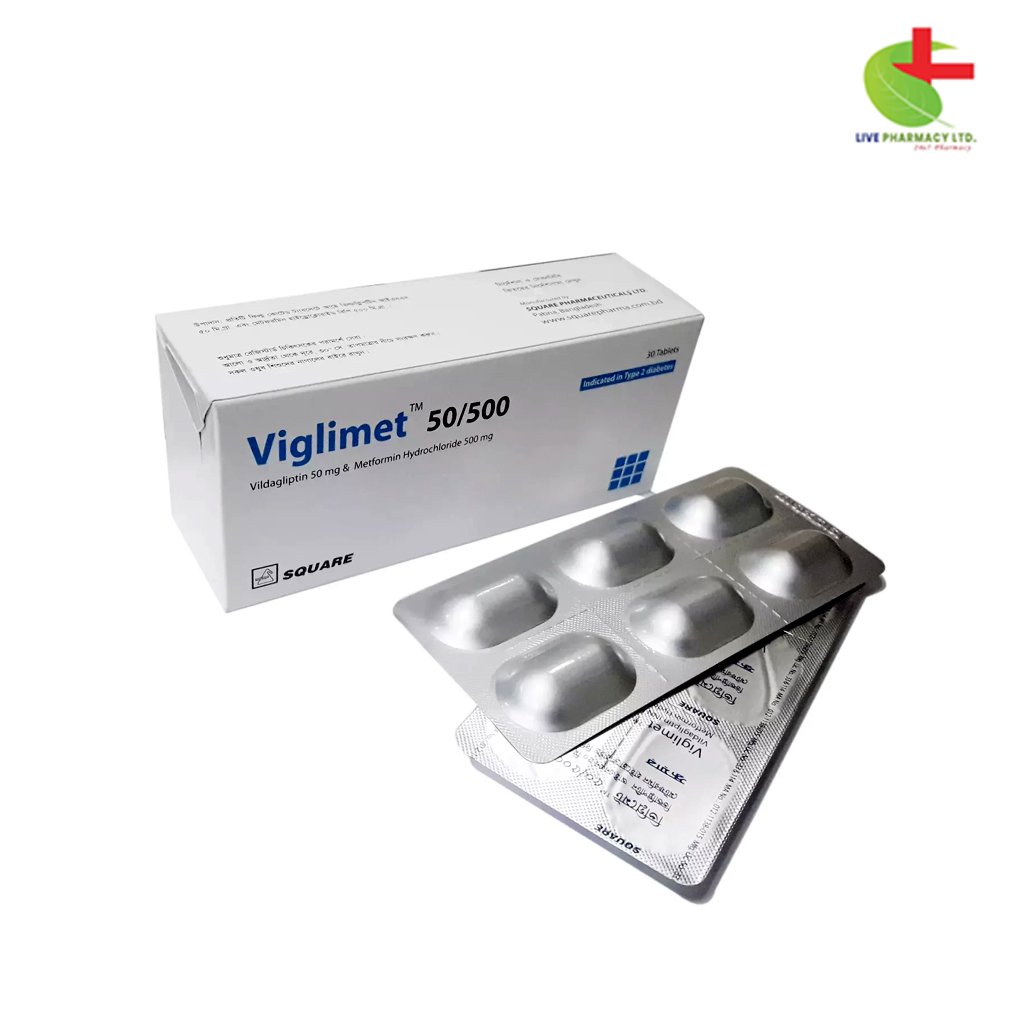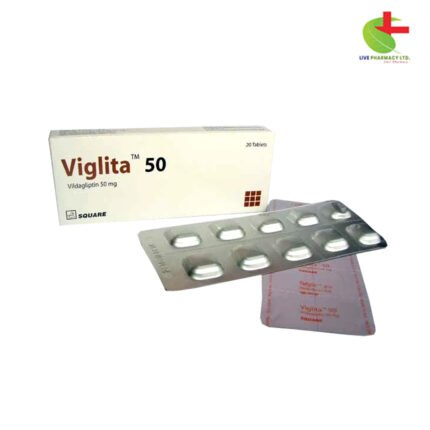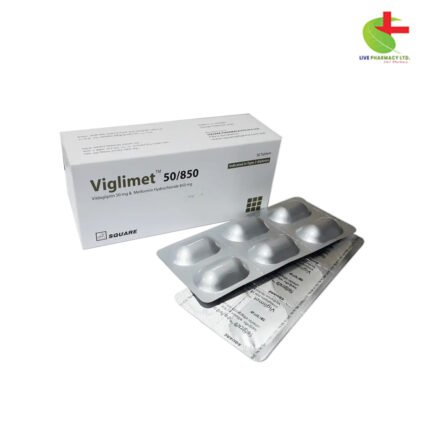Viglimet 50+500
120.00৳ Strip
- Viglimet combines Vildagliptin and Metformin Hydrochloride for improved glycemic control in type 2 diabetes.
- Enhances insulin secretion and reduces hepatic glucose production.
- Suitable for patients not adequately controlled on Metformin or Vildagliptin alone.
- Ensures safe and effective diabetes management with high standards of care and patient safety.
 Brand
Brand
|
Square Pharmaceuticals PLC |
|---|---|
 Generics
Generics
|
Vildagliptin + Metformin Hydrochloride |
 Type
Type
|
Tablet |
Indications
This tablet is prescribed as an addition to diet and exercise to enhance glycemic control in patients diagnosed with type 2 diabetes mellitus. It is particularly beneficial for those whose diabetes is not effectively managed with Metformin Hydrochloride or Vildagliptin alone, or for those already receiving treatment with both medications separately.
Pharmacology
Vildagliptin primarily works by inhibiting DPP-4 (Dipeptidyl peptidase-4), an enzyme responsible for breaking down incretin hormones like GLP-1 (glucagon-like peptide-1) and GIP (glucose-dependent insulinotropic polypeptide). By blocking DPP-4, Vildagliptin increases levels of these hormones, which stimulate insulin secretion and reduce glucagon production. This mechanism helps lower hepatic glucose production and thereby decreases blood sugar levels.
Metformin Hydrochloride, a biguanide oral antihyperglycemic, operates through distinct mechanisms from sulfonylureas, enhancing insulin sensitivity and reducing both basal and postprandial plasma glucose levels without inducing hypoglycemia.
Dosage & Administration
For adults, initiate treatment with one tablet in the morning and one in the evening, adjusted based on current Metformin dosage. Patients already taking separate Vildagliptin and Metformin tablets can transition to this combination with equivalent dosing. It is advisable to take this medication with or shortly after meals to minimize potential gastrointestinal side effects associated with Metformin.
Interactions
Clinical studies show no significant pharmacokinetic interactions between Vildagliptin and Metformin Hydrochloride. Vildagliptin’s low potential for drug interactions makes it compatible with a variety of other medications commonly prescribed for diabetes and related conditions.
Contraindications
This combination is contraindicated in patients with known hypersensitivity to Vildagliptin or Metformin Hydrochloride, as well as those with renal dysfunction, acute myocardial infarction, or severe metabolic acidosis. It should be temporarily discontinued in patients undergoing certain radiologic procedures involving contrast materials.
Side Effects
Common side effects may include headache, tremor, dizziness, nausea, and occasional hypoglycemia.
Pregnancy & Lactation
Due to insufficient data, avoid using this combination during pregnancy unless the benefits clearly outweigh potential risks. It is unknown whether Vildagliptin or Metformin Hydrochloride is excreted in human milk; thus, caution is advised for breastfeeding women.
Precautions & Warnings
Patients should be monitored for signs of lactic acidosis, a rare but serious complication of Metformin use. Regular assessment of renal function and liver function tests is recommended, especially in elderly patients and those with pre-existing conditions affecting these organs.
Use in Special Populations
This combination is not recommended for pediatric patients. Elderly patients should have their renal function monitored regularly due to Metformin’s renal excretion. It is also not recommended for patients with significant hepatic impairment.
Therapeutic Class
This medication belongs to the class of combination oral hypoglycemic preparations.
Storage Conditions
Store in a dry place away from light and heat, and keep out of reach of children.













Reviews
There are no reviews yet.